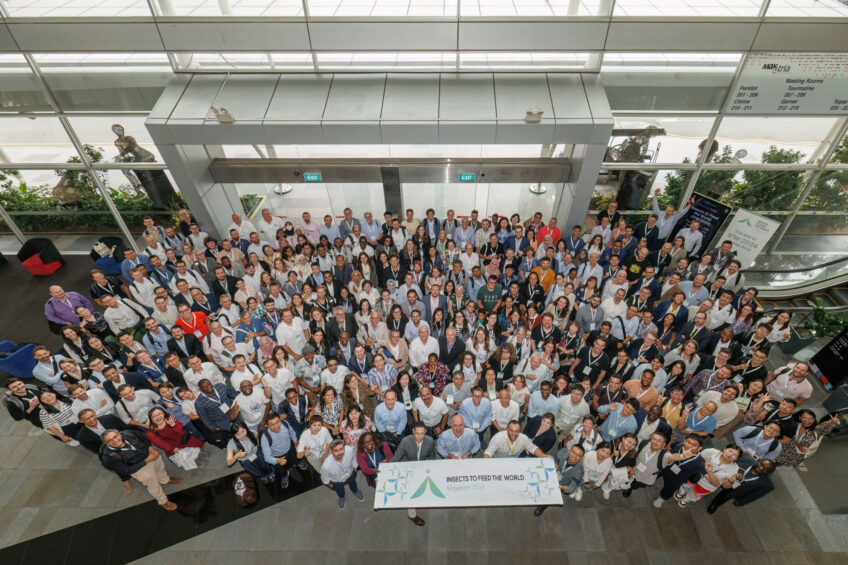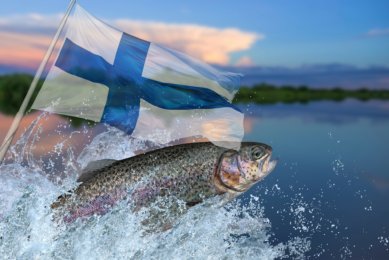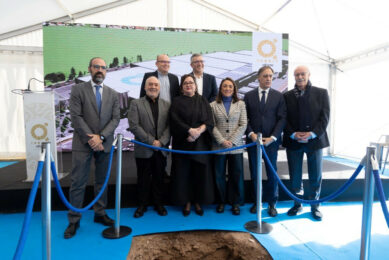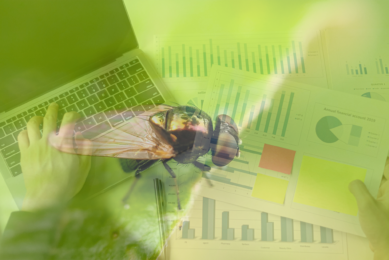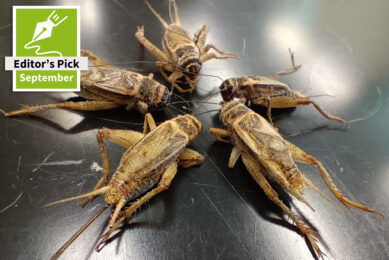Insect potential explored during the 5th IFW conference Photo: AFFIA The 5th edition of the “Insects to Feed the World” (IFW 2024) conference, organised by the Asian Food and Feed Insect Association (AFFIA) , concluded with resounding success at the Singapore EXPO from June 19th to 22nd , 2024. The event was pivotal for advancing dialogue and collaboration in the insect feed and food sector.
Over 600 participants attended IFW 2024, underscoring its significance as a global gathering of industry leaders, researchers, policymakers, and entrepreneurs committed to exploring innovative food and feed security solutions. There were 5 keynote speaker presentations and several parallel sessions covering a wide range of topics. Herein, summaries of the keynote speakers are presented.
Prof. Dr Andreas Vilcinskas Prof. Dr Andreas Vilcinskas of the Institute for Insect Biotechnology at the University of Giessen
“In this context, insect farming promotes the coupling of different CEA production systems for resilient and resource-optimised agriculture aiming for zero waste in a circular bio-economy even in urban landscapes,” he said.
He concluded that current research in industrial insect farming aims to reduce costs by utilising industrial and agricultural side streams as a cheap insect diet and upscale the production capacities on insect farms. “Insect farming can integrate other protein production systems such as indoor farming aquaponics, mushroom cultivation, shrimp and fish aquaculture in Controlled Environment Agriculture.”
Dr. Chrysantus Mbi Tanga, Senior Scientist at the International Centre of Insect Physiology and Ecology (ICIPE) highlighted that the promotion of insect production can contribute to a vibrant circular food/feed system that ensures food and nutritional security, environmental sustainability and employment. He concluded his keynote speech by highlighting 4 take-home messages:
Insect-based technology has a high potential to improve the health and nutrition of animals and transform food systems through a circular economy. Cutting-edge research is critical to harness the full potential of the edible insect sector and build confidence among the end users. Capacity building to further research on insect farming and scaling innovations, public-private sector partnerships, and support of governments and development partners are key to success. There is a need to create continental standards and enabling policies for quality control to attract investors and increase adoption. Nalini Puniamoorthy Nalini Puniamoorthy, Assistant Professor at the National University of Singapore
Dr Meghan Barrett Dr Meghan Barrett, Assistant Professor at Indiana University Indianapolis gave insights into how welfare science in other animal agricultural industries has supported economic productivity, created product differentiation opportunities, and helped maintain their social license to operate. She said these same benefits may also be provided to the ‘insects as food and feed’ industry by the growing field of insect welfare science. She concluded by highlighting that a (possible) future welfare roadmap could consider:
Industry-academia collaborations on conducting insect welfare research that is likely to improve productivity can grow the field, demonstrate commitment to animal welfare and encourage transparent communication to maintain public trust Hiring in-house welfare scientists and develop training and oversight protocols, and Self-regulation whereby agricultural trade associations develop (and regularly update) voluntary animal welfare standards in consultation with independent animal welfare scientists. Kees Aarts Kees Aarts , the CEO and founder of Protix
Commercialise Better by creating products that customers genuinely want and are willing to pay for. This isn’t just about sales; it’s about delivering superior value and quality that stands out against traditional, less sustainable alternatives.Compete Harder by celebrating each other’s successes and pushing ourselves to innovate and excel. Healthy competition will drive our industry forward, making us sharper and more responsive to market needs.Collaborate Smarter as building a successful industry requires more than individual achievements; it demands strong partnerships and alliances across this new circular value chain. By fostering collaboration, we can navigate challenges and seize opportunities, positioning our industry as a leader in sustainable, innovative food and feed solutions.The next IFW conference Looking back at the IFW conference, Martin Zorrilla, Chief Technology Officer of Nutrition Technologies
The next IFW will be held in Turin Academic Society for Insects as Food and Feed (ASIFF)
